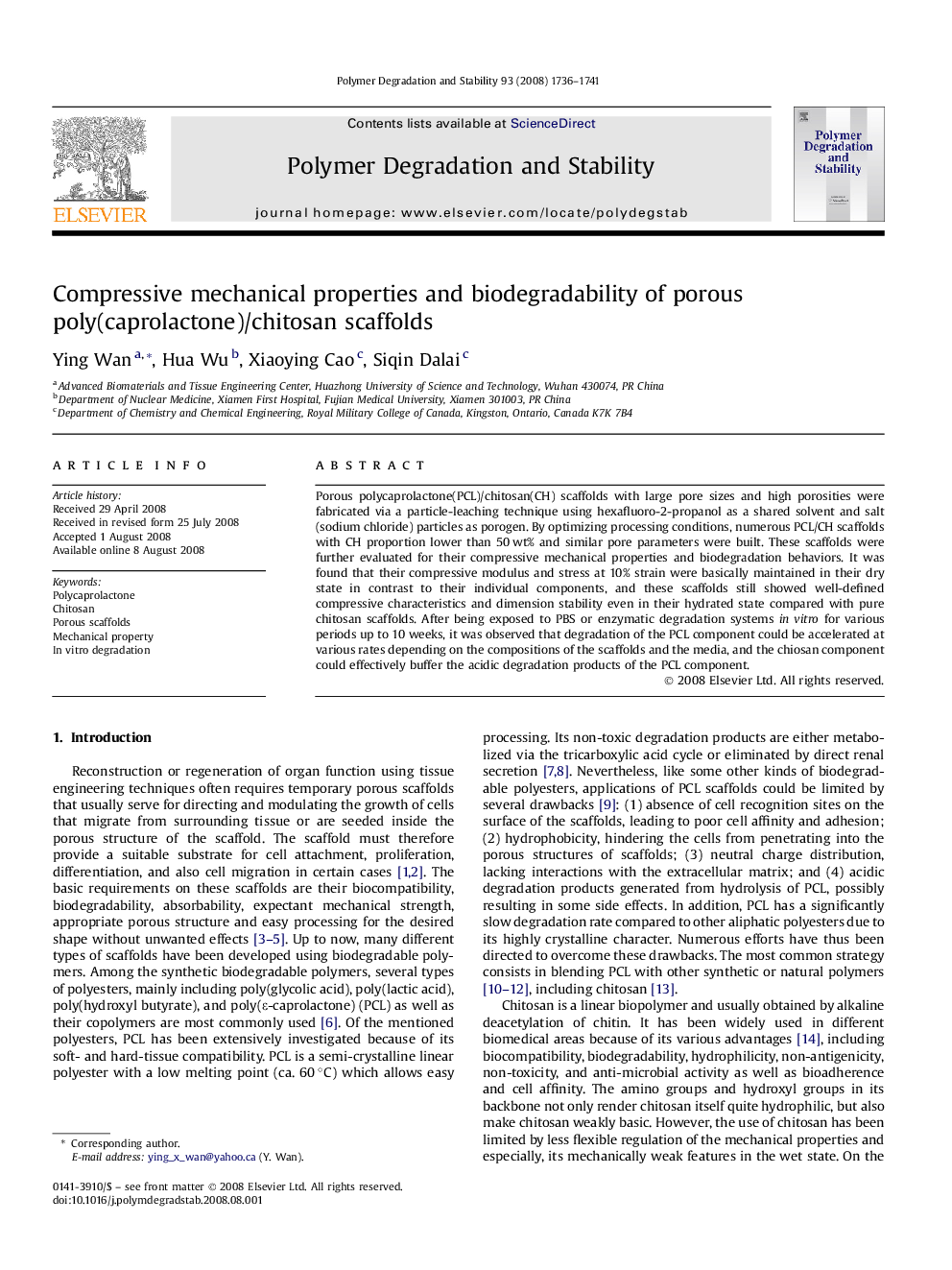| Article ID | Journal | Published Year | Pages | File Type |
|---|---|---|---|---|
| 5203454 | Polymer Degradation and Stability | 2008 | 6 Pages |
Porous polycaprolactone(PCL)/chitosan(CH) scaffolds with large pore sizes and high porosities were fabricated via a particle-leaching technique using hexafluoro-2-propanol as a shared solvent and salt (sodium chloride) particles as porogen. By optimizing processing conditions, numerous PCL/CH scaffolds with CH proportion lower than 50Â wt% and similar pore parameters were built. These scaffolds were further evaluated for their compressive mechanical properties and biodegradation behaviors. It was found that their compressive modulus and stress at 10% strain were basically maintained in their dry state in contrast to their individual components, and these scaffolds still showed well-defined compressive characteristics and dimension stability even in their hydrated state compared with pure chitosan scaffolds. After being exposed to PBS or enzymatic degradation systems in vitro for various periods up to 10 weeks, it was observed that degradation of the PCL component could be accelerated at various rates depending on the compositions of the scaffolds and the media, and the chiosan component could effectively buffer the acidic degradation products of the PCL component.
